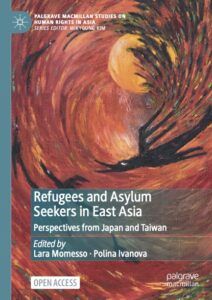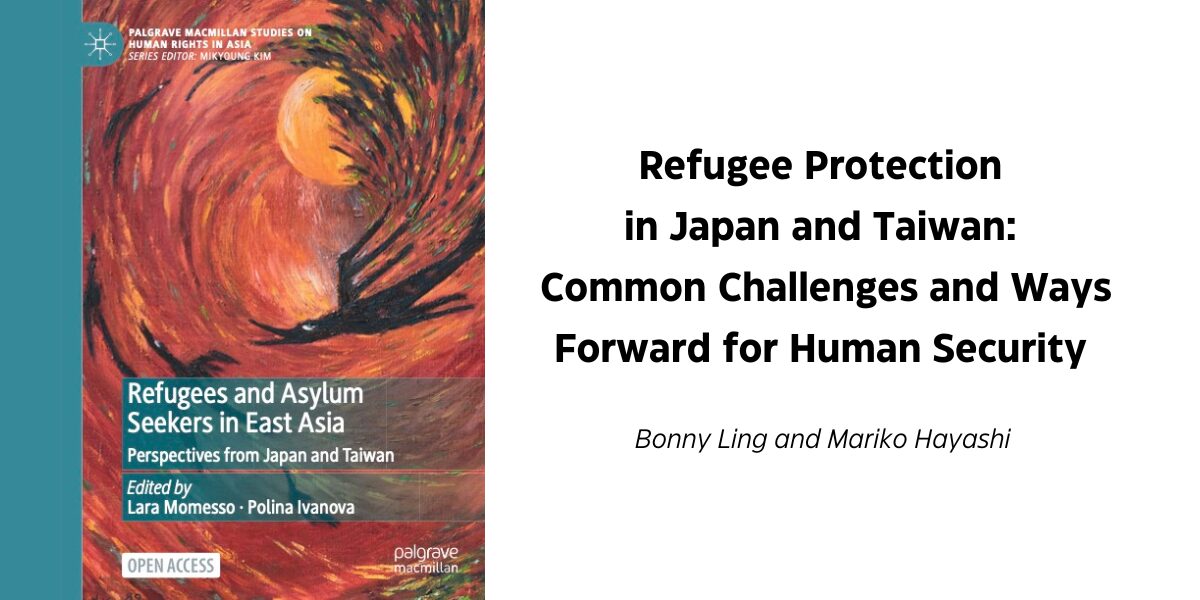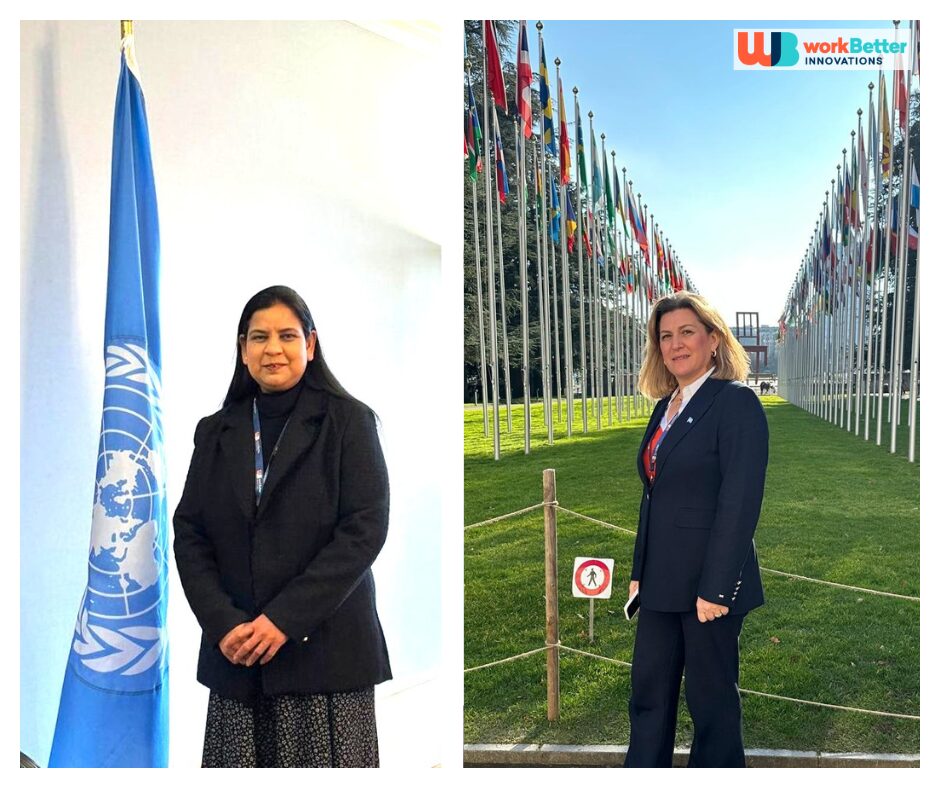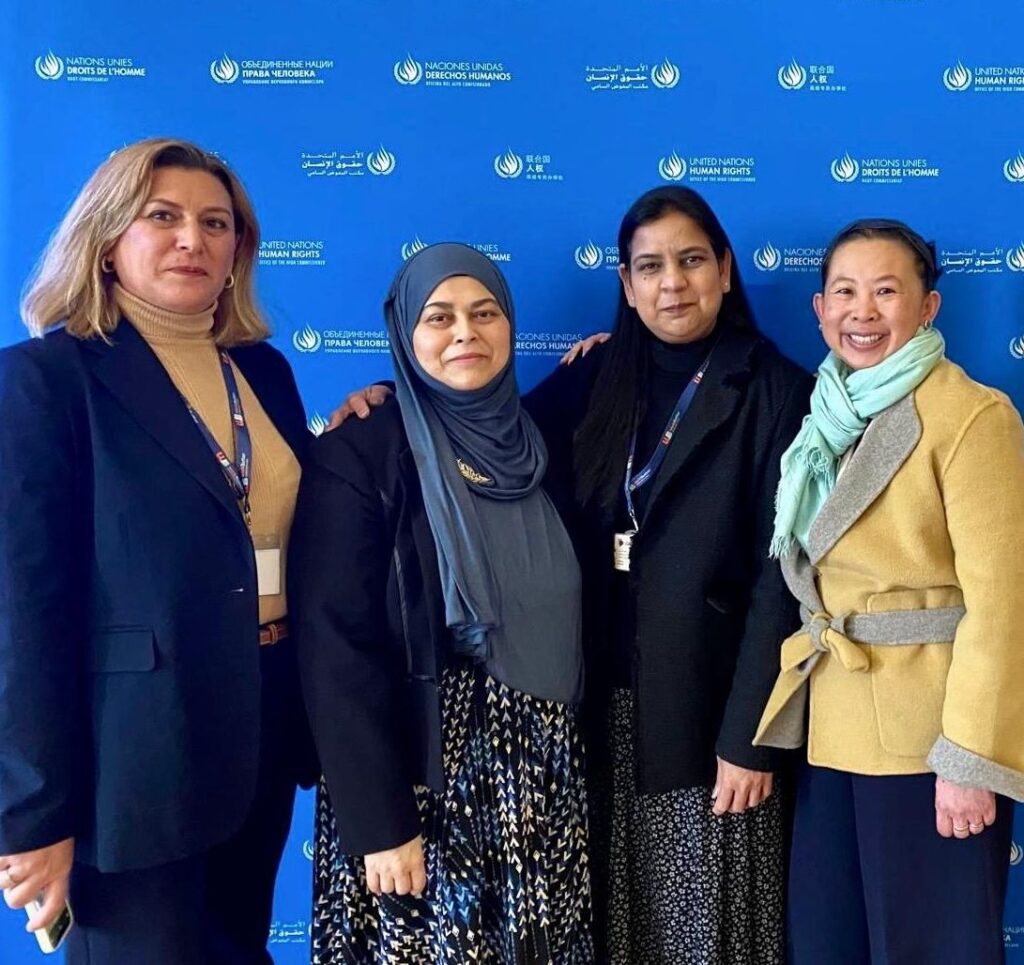20 June 2024. SEEAC, BEBESEA and WBI celebrate World Refugee Day with the announcement of the publication of the book “Refugees and asylum seekers in East Asia: Perspectives from Japan and Taiwan” The book features a chapter written by Mariko Hayashi and Dr Bonny Ling, comparing refugee protection in both Japan and Taiwan.
In 2023, Mariko Hayashi, Executive Director of the civil society organisation Southeast and East Asian Centre (SEEAC) and Co-founder of Better Engagement between East and Southeast Asia (BEBESEA), and WBI Executive Director Dr Bonny Ling started their collaboration on a book chapter, titled ‘Refugee Protection in Japan and Taiwan,’ focusing on common challenges and proposing ways to drive positive change for refugee protection in both countries.
Their work became the opening chapter for an academic book, published by Springer, edited by Lara Momesso (University of Central Lancashire) and Polina Ivanova (Ritsumeikan University).
We are thrilled to announce that the book has now been published and is available open access. Thanks to generous support from the University of Central Lancashire (UCLan), everyone is able to download the book and read it without a paywall. Open access facilitates better knowledge exchange between academics and practitioners, and we are proud to be a part of this book.
The chapter by Ling and Hayashi examined the interplay between human security and traditional security in East Asia, focusing specifically on refugee protection in Japan and Taiwan. Using a comparative approach applied to Japan and Taiwan’s current policies of asylum, the chapter addresses the following three themes:
- Domestic contradictions;
- Constraints of Refugee Protection;
- Opportunity for Action.
With only 1.04% of the total asylum applications receiving a positive decision in Japan, and Taiwan’s lack of an official asylum law, the chapter addresses the question of what can be done differently and to better protect the fundamental right to seek asylum.
In Japan, the enforcement of a strict definition for the term ‘refugee’ has meant that only a tiny fraction of all asylum applications have been granted since the country’s ratification of the UN Refugee Convention (1951). Meanwhile in Taiwan, concerns of national security can impede the protection of refugees.
Nevertheless, there is opportunity for action looking ahead for both countries, to become better aligned with international standards, rules and practices for refugee protection. Central to these efforts are the efforts of civil society to raise public awareness and support human rights.
“What we need is political will and commitment to protect the fundamental human rights of those who are displaced from their homes. As we continue to experience increasingly hostile environments against migrants and refugees all over the world, including here in the UK, the role of civil society is vital in providing refugees and people seeking asylum with essential lifelines and assistance, and calling for systemic changes to create a more inclusive society where all displaced people can find safety and live dignified life.”
– Mariko Hayashi
“We share this vision of everyone living in safety and dignity – the very basics for the international community to meet the Sustainable Development Goals (SDGs),” Bonny reiterates Mariko’s call for compassion and systemic change. To find out more, visit here to download the book and learn more from the incredible lineup of authors.
We especially thank the commitment of the book’s editors, Lara Momesso and Polina Ivanova, to bring about this impressive volume aimed at change in East Asia. We will be embarking on a series of launch events for the book internationally, stay tuned!







